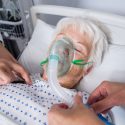
|

|

|

|

CPAP treatment
Are you among the many individuals who prefer alternatives to CPAP therapy for managing sleep apnoea, snoring, or teeth grinding? While CPAP (Continuous Positive Airway Pressure) is an effective treatment, it’s not always the preferred choice for everyone. In this comprehensive guide, we’ll explore five alternative solutions that can help you find relief and improve your sleep quality without using CPAP. Let’s dive in!
Understanding the Need for Alternatives to CPAP
Before we explore these alternatives, it’s essential to understand why some people seek options beyond CPAP. While CPAP can be highly effective, it may not align with everyone’s preferences due to factors like discomfort, claustrophobia, or lifestyle choices. If you’re looking for a different approach, you’re not alone.
1. Lifestyle Modifications for Sleep Improvement
One of the first steps in managing sleep apnoea, snoring, or teeth grinding is making lifestyle adjustments. Simple changes can significantly impact your sleep quality.
Weight Management: Excess weight can contribute to sleep apnoea and snoring. Losing weight through a balanced diet and regular exercise can reduce symptoms.
Avoid Alcohol and Sedatives: These substances relax the throat muscles, potentially worsening sleep apnoea and snoring. Limit or avoid their consumption, especially before bedtime.
Sleep Position: Some individuals experience relief by sleeping on their sides instead of their backs. Consider using pillows or positional devices to maintain the right position.
2. Oral Appliances: A Non-CPAP Approach
For individuals seeking alternatives to CPAP, oral appliances are an excellent choice. These devices are designed to reposition your jaw and tongue to keep the airway open.
Mandibular Advancement Devices (MADs): MADs are custom-made oral appliances that fit over your teeth, pushing your lower jaw and tongue slightly forward to prevent airway blockage.
Tongue Retaining Devices (TRDs): TRDs hold the tongue in place to prevent it from collapsing backward during sleep, ensuring a clear airway.
3. The Role of Dental Professionals
Dentists play a crucial role in managing sleep disorders like sleep apnoea and teeth grinding. They can provide personalized solutions tailored to your specific needs.
Customized Oral Appliances: Dentists can create custom-made oral appliances to address sleep apnoea, snoring, and teeth grinding effectively.
Regular Dental Checkups: Regular dental visits can help detect and manage teeth grinding, which may be linked to sleep disorders.
4. Natural Remedies and Holistic Approaches
For those who prefer natural alternatives, several holistic approaches can complement traditional treatments.
Herbal Remedies: Certain herbs like valerian root and chamomile may promote relaxation and better sleep.
Mindfulness and Relaxation Techniques: Practices such as meditation, yoga, and deep breathing exercises can reduce stress and improve sleep quality.
5. Surgical Interventions as a Last Resort
In some cases, when other options haven’t provided relief, surgical interventions might be considered.
Uvulopalatopharyngoplasty (UPPP): This surgical procedure involves removing excess tissue from the throat to widen the airway.
Inspire Therapy: A newer approach, this implantable device stimulates the hypoglossal nerve to prevent airway obstruction during sleep.
Conclusion
Choosing the right alternative to CPAP therapy requires careful consideration of your unique needs and preferences. Lifestyle changes, oral appliances, dental professionals, natural remedies, and surgical interventions all offer promising avenues for managing sleep apnoea, snoring, and teeth grinding without relying on CPAP.
At Alphington Dental Care, our experienced team of dental professionals is here to provide you with tailored solutions for a peaceful night’s sleep. Contact us today to schedule a consultation and discover the alternative options that can transform your sleep quality and overall well-being. Don’t wait – let’s start your journey to better sleep together!





